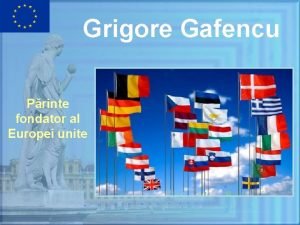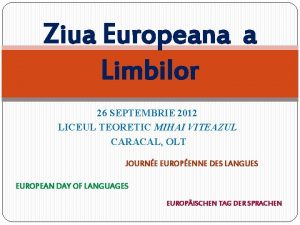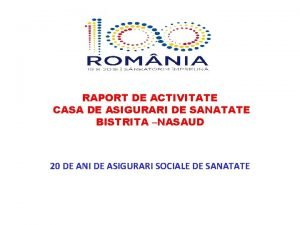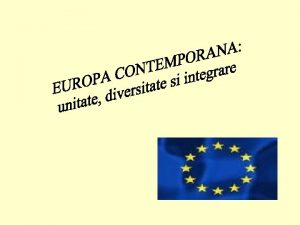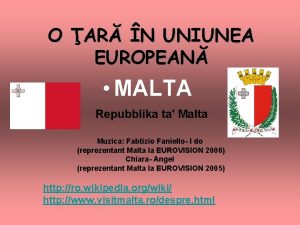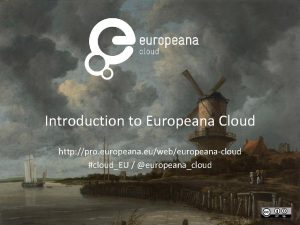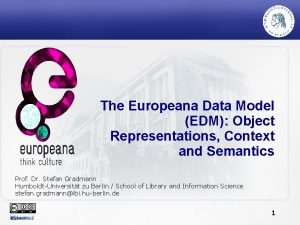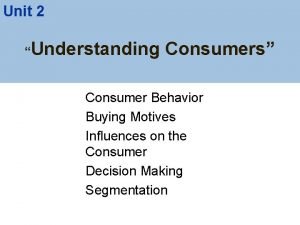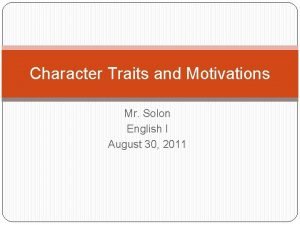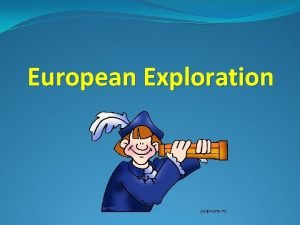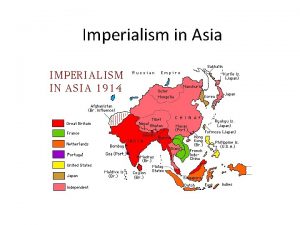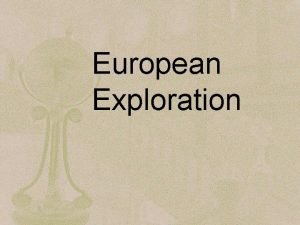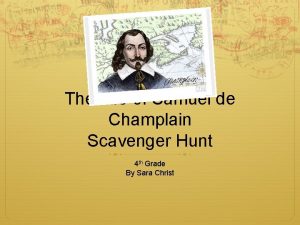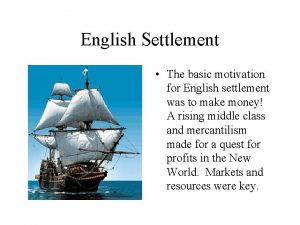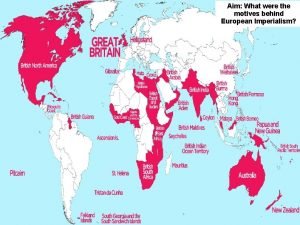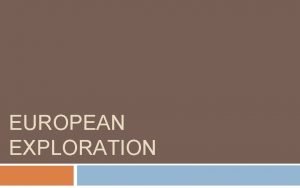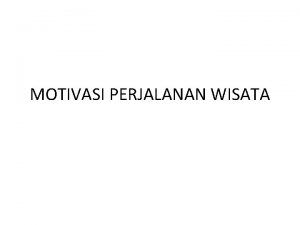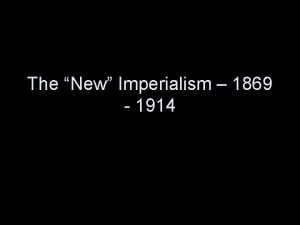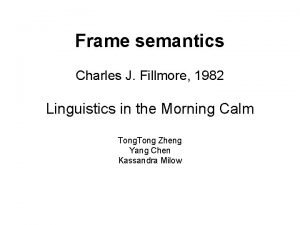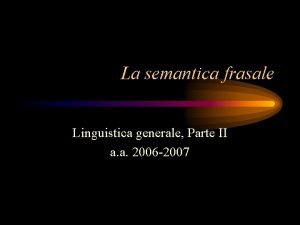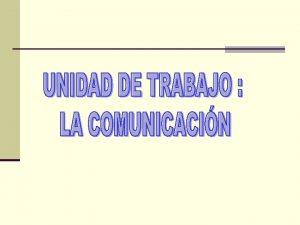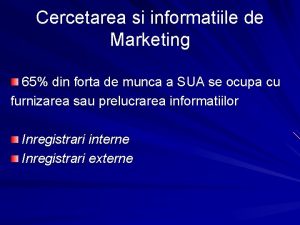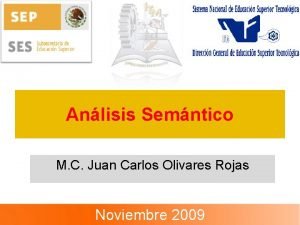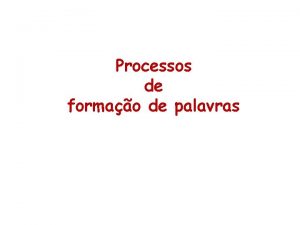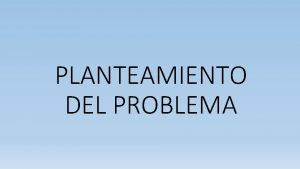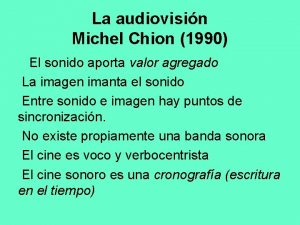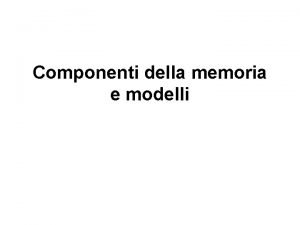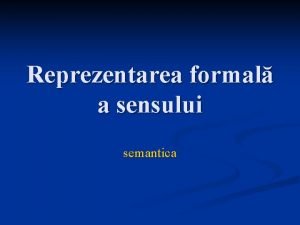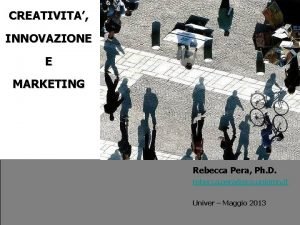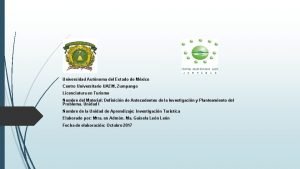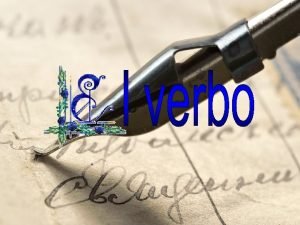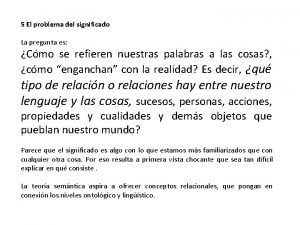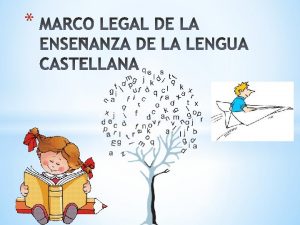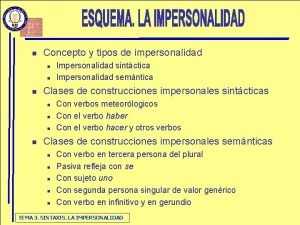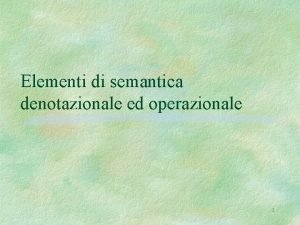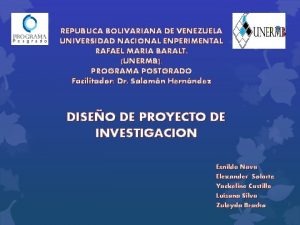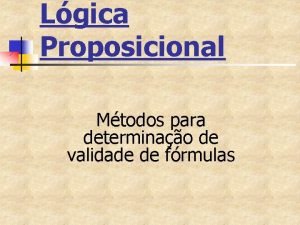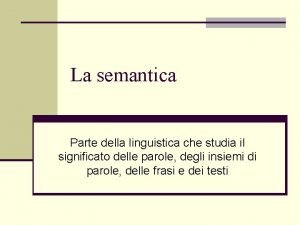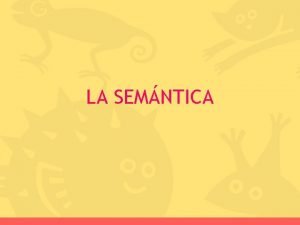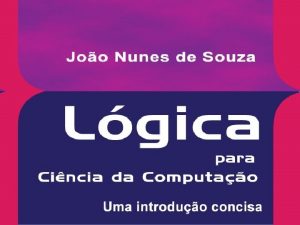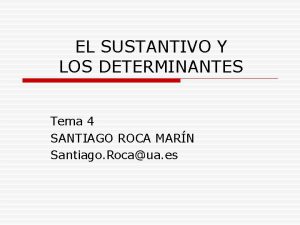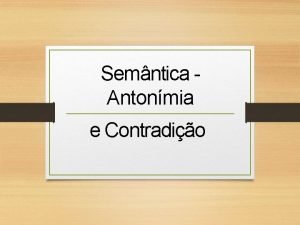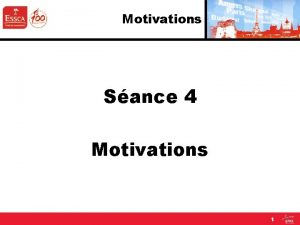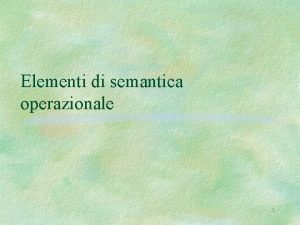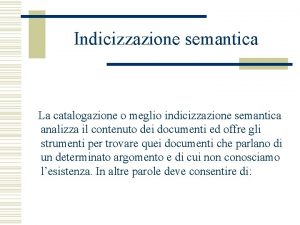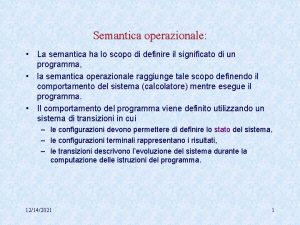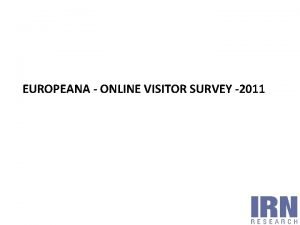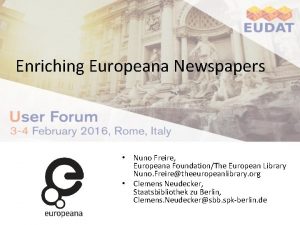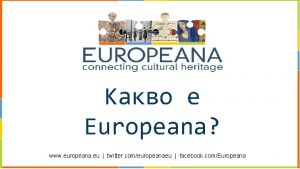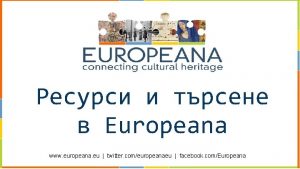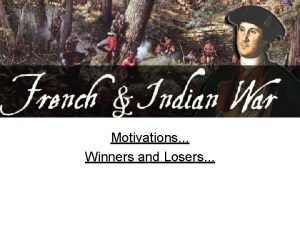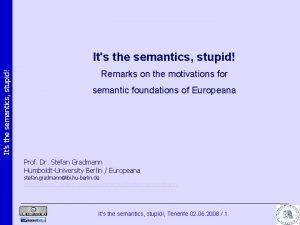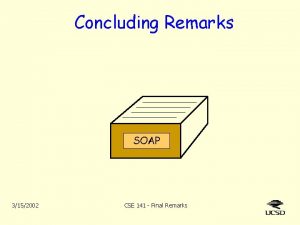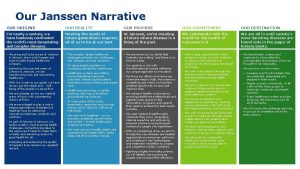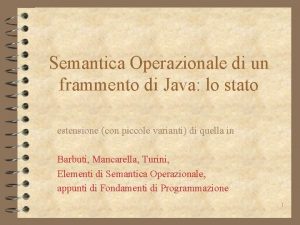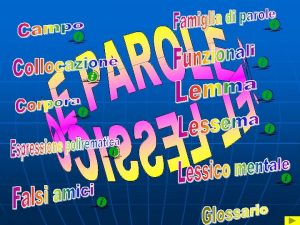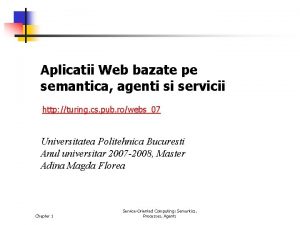Europeana Semantica Remarks on the motivations for our
















































- Slides: 48

Europeana Semantica Remarks on the motivations for our semantic foundations Prof. Dr. Stefan Gradmann Humboldt-Universität zu Berlin / School of Library and Information Science stefan. gradmann@ibi. hu-berlin. de

Overview Background: i 2010 and the Google challenge Putting semantics on the agenda: EC working group on DL interoperability recommendations. . . as taken up in Europeana functional specifications and architecture (D 2. 5) Where do we go from here? Proposals, plans & prospects Europeana. Connect, Europeana 1. 0, Rose. . . Semantics: why, for whom? Digital Humanities Scholars Strategic value of Europeana semantic foundations Europeana Semantica - Jerusalem 2 11/11/2008

How it all started. . . 2005: Excitement about Google Books (Jeanneney: “Google defie l'Europe” => Chirac, Schröder) => EC i 2010 agenda with Digital Libraries as one of 3 'flagship initiatives': the setting up of the European Digital Library as a “common multilingual access point to Europe’s distributed digital cultural heritage including all types of cultural heritage institutions”, announced by Commissioner Reding in September 2005 2008: at least 2 million digital objects; multilingual; searchable and usable; work towards including archives. 2010: at least 6 million digital objects; including also museums and private initiatives. DL Interoperability WG active from January to June 2007 with as main mission to Contribute to the short term DL agenda => identify areas for short term action and recommend elements of an action plan (list of prioritised feasible options) Europeana Semantica - Jerusalem 3 11/11/2008

DL Interoperability Working Group Composition Emmanuelle Bermes (Bibliothèque nationale de France / F), Mathieu Le Brun (Centre Virtuel de la Connaissance sur l’Europe / LU) Sally Chambers (The European Library Office / TEL), Robina Clayphan (The British Library / GB), Birte Christensen-Dalsgaard (State and University Library Aarhus / DK), David Dawson (The Museums, Libraries and Archives Council / GB), Stefan Gradmann (Hamburg University Computing Center / D, Moderation), Stefanos Kollias (Technical University of Athens / GR), Maria Luisa Sanchez (Ministerio de Cultura / ES), Guus Schreiber (Vrije Universiteit Amsterdam / NL), Olivier de Solan (Direction des Archives de France / F) Theo van Veen (Koninklijke Bibliotheek / NL) EC: Pat Manson Chair), Marius Snyders (European Commission, DG INFSO, Cultural Heritage and Technology Enhanced Learning) Federico Milani (European Commission, DG INFSO, e. Content. Plus) Europeana Semantica - Jerusalem 4 11/11/2008

The Interoperability Abstraction Layer Cake Abstract semantic allowing to access similar classes of objects and services across multiple sites, with multilinguality of content as one specific aspect Interoperability Group Focus => Europeana functional / pragmatic based on a common set of functional primitives or on a common set of service definitions syntactic allowing the interchange of metadata and protocol elements technical/basic common tools, interfaces and infrastructure providing uniformity for navigation and access Concrete Europeana Semantica - Jerusalem 5 11/11/2008

Towards a Semantic Agenda for Europeana DL interoperability group identified semantically enabled functionality as the critical, distinguishing feature of a European Digital Library The final report states “Semantic web technologies can be used to create semantic interoperability in three areas: interoperability of the federated content resources on concept level semantic interoperability of EUDL on user interface level semantic interoperability of EUDL for automated processing both for EUDL being plugged in emergent semantically aware WWW services and for integrating such services in the functional scope of EUDL. ” Europeana Semantica - Jerusalem 6 11/11/2008

Short Term Agenda Issues for 2008 (2 out of 10) (8) Basic Semantic Interoperability Make existing metadata and the controlled terminology used therein machine understandable to create a data layer ready for semantic query methods. The method of choice for conversion is SKOS, but use of OWL or RDF may be appropriate in some application scenarios. (9) Awareness Building regarding Semantic Interoperability Demonstrate the added value to be gained from semantic interoperability and the short term viability of converting existing controlled terminology in experimentation environments relevant to the Eu. DL. These environments also to be used to market semantic interoperability functions of Eu. DL as our unique selling point. More at http: //bnd. bn. pt/seminario-conhecer-preservar/doc/Stefan%20 Gradmann. pdf. Europeana Semantica - Jerusalem 7 11/11/2008

. . . as taken up in Europeana Draft functional specification (D 2. 5) statements: A semantic interface for Europeana “A central principle for building Europeana is that a network of semantic resources will be used as the primary level of user interaction. ” Interaction with data providers “Aggregators and other content providers need to provide identifiers, metadata files, vocabularies in SKOS form, links to semantic nodes, licensing and rights information and access to the original digital objects. ” Terminology mapping “The work to turn this [collection of Europeana terminologies] in a 'European Ontology' and more specifically the mapping of these concept schemes cannot be done in the context of Europeana alone but must be made be part of the wider EC research agenda. However, Europeana will have to contain instruments that can be used to produce such mappings and to promote best practices. ” Make Europeana a network of inter-operating object surrogates enabling semantics based object discovery and use. Europeana Semantica - Jerusalem 8 11/11/2008

Europeana is not Yet Another Digital Libray Europeana Semantica - Jerusalem 9 11/11/2008

Document Objects, Metadata and Semantic Networks Europeana Semantica - Jerusalem 10 11/11/2008

Contextualisation of Europeana Surrogate Aggregations Europeana Semantica - Jerusalem 11 11/11/2008

. . . and further developped in projects planned and proposed for EC funding Europeana V 1. 0 (e. Content+ TN, implementation) Providing Europeana infrastructure components Building parts of the core functionality of Europeana Building the Europeana organisation Europeana. Connect (e. Content+ BPN, implementation) Integrate work from different (mostly EU funded) development activities to provide additional core and advanced functionality with WP 1 being about “Creating the Europeana Semantic Layer” ROSE (ICT Strep, Research) semantic interoperability, ontology matching, ontology mapping, mapping evolution, co-reference discovery and generalised surrogate building machine Not to mention Europeana Local, Athena, European Film Gateway, Apenet & all the rest. . . Europeana Semantica - Jerusalem 12 11/11/2008

Europeana 1. 0 Big Picture Europeana Semantica - Jerusalem 13 11/11/2008

Semantics: for whom? Citizens Main focus of Europeana work to date, cf. some details at (Use Cases) and (focus groups) Machines Make European cultural heritage part of future global semantic processing networks Digital Humanities Scholars Humanities scholars always have been concerned with reaggregation and interpretation of cultural heritage corpora (literature, music, artwork – all kinds of cultural artefacts) Europeana enabling automated semantic operations over large cultural heritage corpora creates entirely new opportunities for the digital humanities! Europeana Semantica - Jerusalem 14 11/11/2008

Scholarship in the digital era Europeana Semantica - Jerusalem 15 11/11/2008

Processing of source data in the Humanities: aggregation. . . Europeana Semantica - Jerusalem 16 11/11/2008

. . . modeling. . . Europeana Semantica - Jerusalem 17 11/11/2008

. . . and Digital Heuristics? Europeana Semantica - Jerusalem 18 11/11/2008

Digital Document Value Add-On (c) J. -C. Meister Complexity Semantic Web Linking Hyperlinks Variant Comparison Semantic Mark. Up Collocation Semantic Profiling (Z-Score) Concordance DTD Search&Retrieval Pattern Recognition Formal Mark. Up Parsing, Character Substitution Hermeneutical Richness Europeana Semantica - Jerusalem 19 11/11/2008

Open Scholarly Communities on the Web partly (c) Paolo d'Iorio / Michele Barbera Objective Create social networks of specialists in a humanities research area Enable 'web scholarship' Similar to academies in the 17 th century Barriers Scholars lack digital literacy Public institutions tax digital access to public domain Publishers protect old business models Lack of content, lack of open sources Europeana Semantica - Jerusalem 20 11/11/2008

Online Survey of Humanities Scholars Christine Madsen / Oxford Internet Institute Europeana Semantica - Jerusalem 21 11/11/2008

Some Work Done / Ongoing Hyper. Nietzsche COST A 32: “Open Scholarly Communities on the Web” (13 countries) April 2006 - December 2010 to establish and foster the growth of Scholarly Communities on the Web to create a digital infrastructure for the humanities to define an appropriate legal, economic and social framework e. Content+ project: “Discovery. Digital semantic corpora for virtual research in philosophy” (6 partners) Key partners in all scenarios are CNRS ITEM (Paolo d'Iorio) and Net. Seven (Michele Barbera) I am leading A 32 WG 2 (Technology) together with Michele Barbera Europeana Semantica - Jerusalem 22 11/11/2008

Components Created to Work on this Corpus Hyper “. . . a web application created to help scholars in accessing primary sources (like manuscripts) and to share the result of their researches. ” pre-Discovery (PHP, Postgre. SQL) Talia “. . . a semantic web digital library system, designed to help philosophy researchers and scholars in their work with digital content and provide them with all the resources needed for their work. ” Discovery (Ruby) => http: //www. talia. discovery-project. eu/ Philospace “. . . is an innovative client application that allows users to browse philosophical content, published in the Talia platform, leveraging the power of semantic knowledge associated to such contents. ” Discovery (Dbin 2. 0, => http: //dbin. org) Europeana Semantica - Jerusalem 23 11/11/2008

Discovery Corpus: Digitised Manuscripts Philosophy Literature History Friedrich Nietzsche Gustav Flaubert CNRS-ITEM, Paris Fernand Braudel CNRS-ITEM, Paris Ancient / Modern Philosophy CNR-ILIESI, Roma Marcel Proust CNRS-ITEM, Paris Arthur Schopenhauer Paul Valéry Universities Pisa / Mainz CNRS-ITEM, Paris Contemporary philosophy Virginia Woolf Rai. Net, Roma MSH-Paris Leicester / London Ludwig Wittgenstein WAB, Bergen Europeana Semantica - Jerusalem 24 11/11/2008

“To work towards making all good things part of the common good and all things free to those who are free” Europeana Semantica - Jerusalem 25 11/11/2008

Hyper: Digitisiation, Presentation (1) Europeana Semantica - Jerusalem 26 11/11/2008

Hyper: Digitisiation, Presentation (2) Europeana Semantica - Jerusalem 27 11/11/2008

Hyper: Transcription, Presentation (1) Europeana Semantica - Jerusalem 28 11/11/2008

Hyper: Transcription, Presentation (2) Europeana Semantica - Jerusalem 29 11/11/2008

Hyper: Sources and Editions (synoptical) Europeana Semantica - Jerusalem 30 11/11/2008

Hyper: More Synoptical Features Europeana Semantica - Jerusalem 31 11/11/2008

Talia: Refacturing Hyper using Semantic Web (1) Europeana Semantica - Jerusalem 32 11/11/2008

Talia: Refacturing Hyper using Semantic Web (2) Europeana Semantica - Jerusalem 33 11/11/2008

Manuscript Stemmata: A Specific Kind of Inferencing (1) Europeana Semantica - Jerusalem 34 11/11/2008

Manuscript Stemmata: A Specific Kind of Inferencing (2) Europeana Semantica - Jerusalem 35 11/11/2008

Talia/Philo. Space: Annotations and Semantic Enrichment Europeana Semantica - Jerusalem 36 11/11/2008

Semantic Enrichment Example (1) Europeana Semantica - Jerusalem 37 11/11/2008

Semantic Enrichment Example (2) Europeana Semantica - Jerusalem 38 11/11/2008

Semantic Enrichment Example (3) Europeana Semantica - Jerusalem 39 11/11/2008

Semantic Enrichment Example (4) Europeana Semantica - Jerusalem 40 11/11/2008

Semantic Enrichment Example (5) Europeana Semantica - Jerusalem 41 11/11/2008

Hyper/Talia: Bidirectional Links Europeana Semantica - Jerusalem 42 11/11/2008

Hyper/Talia: Dynamic Contextualisation (1) Europeana Semantica - Jerusalem 43 11/11/2008

Hyper / Talia: Dynamic Contextualisation (2) Europeana Semantica - Jerusalem 44 11/11/2008

. . . a nice basis for reasoning / digital heuristics! Europeana Semantica - Jerusalem 45 11/11/2008

Conclusion (1): It's the semantics, stupid! Converging agendas Platforms such as Talia and communities built around those need to be pluggable into Europeana Such platforms and communities must be capable to display Europeana resources as part of their proper functional context For the first two interoperability requirements to be viable at all a strong semantic data layer as part of Europeana and an appropriate API for specialised reasoning as a basis for digital humanities heuristics are vitally required We thus do not propose to fight Google – but rather will provide a critical added value Google doesn't offer (but may of course be working on, but in secret. . . ) In such a perspective, a strong profile characteristic for Europeana would – paradoxically – result from what may be perceived as a specific European weakness: the scattered, heterogeneous and multilingual nature of our cultural resources requiring semantic foundations for conceptual interoperability! Europeana Semantica - Jerusalem 46 11/11/2008

Conclusions (2): It's the humanities, stupid! A semantics aware Europeana delivers what has been asked for in the “Cyberinfrastructure for the Social Sciences and Humanities” report commissioned by the ACLS: “Our Cultural Commonwealth” Interoperability of Technology and Scholarship: “The often institutionally enforced disconnect between technician and scholar is a microcosm of the much larger failure to consider the ends to which our powerful machine is put. [. . . ] Unfortunately we are still in some instances thinking that the non-technical scholar specifies the end in mind, whereupon the technician implements it. In that circumstance both lose. ” (Willard Mc. Carty, Humanist Discussion Group 22. 053) Europeana needs to build a strong semantic data layer at the foundation of its large digital corpora provide users with clearly defined APIs to support specialised functions for reasoning and digital heuristics work with the humanities computing community In that circumstance both win! Europeana Semantica - Jerusalem 47 11/11/2008

Conclusions (3): from 'Connecting' to 'Thinking' Co-operation of a semantically based Europeana and of Digital Humanities communities enables the transition from Thank you for your patience and attention! Europeana Semantica - Jerusalem 48 11/11/2008
 Grigore gafencu si unitatea europeana
Grigore gafencu si unitatea europeana Relieful europei
Relieful europei 26 septembrie ziua europeana
26 septembrie ziua europeana Asigurare de sanatate europeana pret
Asigurare de sanatate europeana pret Europa spatiu al diversitatii
Europa spatiu al diversitatii Malta uniunea europeana
Malta uniunea europeana Europeana data model
Europeana data model Europeana cloud
Europeana cloud Europeana data model
Europeana data model Buying motivations
Buying motivations Character traits and motivations
Character traits and motivations Three g's of european exploration
Three g's of european exploration British imperialism in asia
British imperialism in asia Balboa expedition
Balboa expedition What did samuel de champlain accomplish
What did samuel de champlain accomplish English motivations for settlement
English motivations for settlement Motivations for imperialism in asia
Motivations for imperialism in asia “god, glory, gold”
“god, glory, gold” Yang dimaksud dengan motivasi adalah
Yang dimaksud dengan motivasi adalah Motives for imperialism
Motives for imperialism Frame semantico
Frame semantico Semantica frasale
Semantica frasale Barrera semantica
Barrera semantica Sobreextensión semantica
Sobreextensión semantica Situacionalidade exemplos
Situacionalidade exemplos Diferentiala semantica
Diferentiala semantica Manejo de errores semánticos.
Manejo de errores semánticos. Semântica significado
Semântica significado Oracion topica ejemplo
Oracion topica ejemplo Escucha semantica
Escucha semantica Memoria semantica
Memoria semantica Ambiguitate semantica
Ambiguitate semantica Processo creativo rossman
Processo creativo rossman Delimitacion semantica
Delimitacion semantica Eecer
Eecer Significado
Significado Competencia enciclopedica
Competencia enciclopedica Impersonalidad definicion
Impersonalidad definicion Relacao semantica
Relacao semantica Delimitacion semantica
Delimitacion semantica Semantica denotazionale
Semantica denotazionale Delimitacion semantica
Delimitacion semantica Teletransmitida
Teletransmitida árvore semântica
árvore semântica Parte della linguistica
Parte della linguistica Hipernomia
Hipernomia Relacao semantica
Relacao semantica Sustantivos primitivos
Sustantivos primitivos Antonimia binaria inversa e gradativa
Antonimia binaria inversa e gradativa
